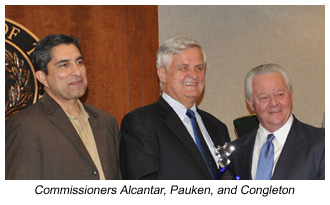 As reported by the Workers Defense Project in a press release last week, the Texas Workforce Commission (TWC) held a public meeting on Monday, November 8, 2010. Construction Citizen representatives attended the meeting to learn about the status of proposed misclassification legislation in Texas.
As reported by the Workers Defense Project in a press release last week, the Texas Workforce Commission (TWC) held a public meeting on Monday, November 8, 2010. Construction Citizen representatives attended the meeting to learn about the status of proposed misclassification legislation in Texas.
The three TWC Commissioners presided over the meeting:
Tom Pauken, Chairman and Commissioner Representing Employers
Ronny Congleton, Commissioner Representing Labor
Andres Alcantar – Commissioner Representing the Public
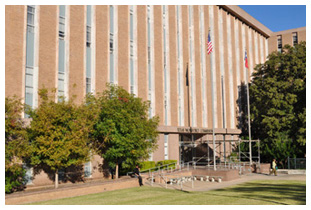
Item #18 on the docket for the meeting listed “Discussion, Consideration and Possible Action Regarding Legislative Proposals by the Texas Workforce Commission to the 82nd Texas Legislature, Regular Session (2011).” The proposed legislation was presented by Tom McCarty, Director of the External Relations Division of the TWC. The commissioners were being asked to decide whether to offer the support of the TWC for each of the proposals when the proposals come before the Texas Legislature for consideration next spring. Among the 14 legislative recommendations presented by McCarty we found four of them particularly interesting.
Legislative Recommendation – Safe Harbor Provisions. Currently in Texas, whether a worker is classified as an employee or as an independent contractor is determined by the state’s version of the 20-factor common law direction and control test, and is not always consistent with how the IRS may have ruled on a particular employer’s workers. The proposed legislation would effect an employer who had classified a worker as an independent contractor based on “reasonable basis” and then was later told by the TWC or by a court that the worker was in fact an employee. It would prevent the employer from owing back taxes, interest and penalties on wages paid to the worker. The employer would be required to pay proper wages and taxes only from that point forward, but would not be penalized for unpaid amounts in the past. Precedent for the proposal is based on federal law, Section 530 of the Revenue Act of 1978 which creates a similar “safe harbor” for employers if certain criteria are met.
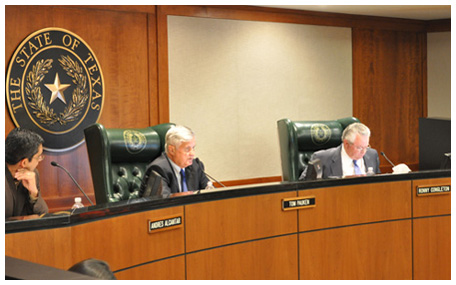
Pauken stated that he believes that it is inequitable for the employer to be hit with back taxes, interest and penalties when he has acted in good faith, thinking he was doing the right thing by operating in accordance with a previous determination or ruling by the IRS, the TWC or a court. He was in favor of the proposal, pointing out that passing this legislation would bring Texas law in line with current federal law.
Alcantar would like to postpone the commission’s decision until after the budgetary impact on the state could be reworked for more clarity. He would also like to see “reasonable basis” more tightly defined.
Congleton stated that the “safe harbor” provision is unfair to employers who do not misclassify their workers.
The decision by the commission on whether to recommend the proposal was tabled awaiting further information to be presented at another hearing.
Legislative Recommendation – Misclassification. The proposed legislation would assess a monetary penalty on employers that misclassify employees as independent contractors. The rationale behind the proposal is that the practice of misclassification is a “detrimental and rapidly expanding practice” whereby an employer can lower operating costs without risking meaningful consequences. Proper worker classification then depends largely on the principles of the employer, resulting in a “competitive advantage for less scrupulous employers”.
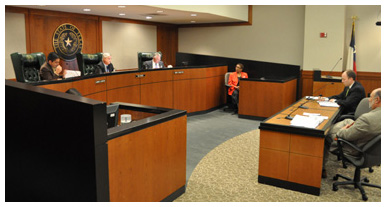
Congleton began the discussion on this proposal with several statements: “We need to bring the rule of law to the enormous underground economy in Texas. Misclassification hurts workers and employers. Workers are denied unemployment insurance, social security, Medicare and other benefits. Honest employers face unfair competition. The lost revenue to the trust fund results in higher taxes for employers that play by the rules. Current law encourages misclassification with nonexistent or ineffective penalties. It is time to assess a penalty on scofflaw employers. Currently there is no incentive to comply with the law. We will never stem the tide without a meaningful penalty.”
Pauken answered that he disagreed with adding additional regulation to Texas employers and that currently there are already federal laws through the IRS which address this issue.
Alcantar stated that he would not agree to support the proposal.
Legislative Recommendation – Wage Claim Anti-Retaliation. The proposed legislation would amend Chapter 61 of the Labor Code to make it illegal for an employer to retaliate against an employee for filing a wage claim. The Payday Act allows Texas workers to file for unpaid wages after they leave employment, but currently there is nothing to stop employers from firing workers who file for denied overtime, miscalculated hours, improper deduction or other wage theft. This results in many workers putting up with wage theft due to fear of losing their jobs altogether.
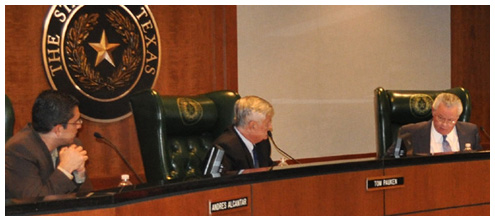
Congleton was in favor of this proposal, stating that strengthening the Payday Act would help workers collect wages due to them. He pointed out that workers should not have to fear using the remedies already granted to them by the Texas Legislature.
Pauken was against the proposal, fearing that it could be abused and that it changes the concept of Employment Will in Texas. He pointed out that federal law already prohibits retaliation against someone who files a wage claim, so this amendment is unnecessary and redundant.
Alcantar stated that the policy was already in place in Texas, so he was not in favor of the amendment.
Legislative Recommendation – Increase Classification of Offenses and Penalties. This proposal with specific recommended amendments to Title 4, Subtitle A of the Texas Labor Code (the Texas Unemployment Compensation Act) would increase punishments (sentences) and financial penalties for employees who misclassify themselves and also for employers who misclassify workers.
All three commissioners were against this proposal, but for different reasons. Pauken and Alcantar both felt that since under current law certain cases will be bumped up to a higher offense simply by the dollar amount of the crime, then it is not necessary or even desirable to add legislation which would automatically increase the level with which the defendants would be charged. Congleton did not believe in increasing the punishments because typically the criminal violations are only enforced against the workers, while the employers usually only have to pay a fine. Congleton stated that he could support increases such as these only when prosecutions are equalized between workers and employers.
As previously reported, there are currently two bills before Congress which would govern the issues of misclassification and wage theft at a federal level. Interestingly, the Fair Playing Field Act of 2010 (S.3786) is specifically designed to eliminate the “Safe Harbor” found in Section 530 of the Revenue Act of 1978 used in the rationale behind the proposed “Safe Harbor Provisions” which the TWC is now considering whether or not to support. The other federal bill, the Employee Misclassification Prevention Act of 2010 (S.3254), would amend the Fair Labor Standards Act of 1938 to require employers to keep records of non-employees who perform labor or services and to penalize those who misclassify employees as independent contractors.
We at Construction Citizen will be watching to see what happens with each of these proposals and will continue to keep you informed.




Comments
Contracts
Recently, a potential employer tried to get me to agree to pay their legal costs for any government action brought against them concerning wage claims or misclassifications regardless of my involvement in the case.
Add new comment